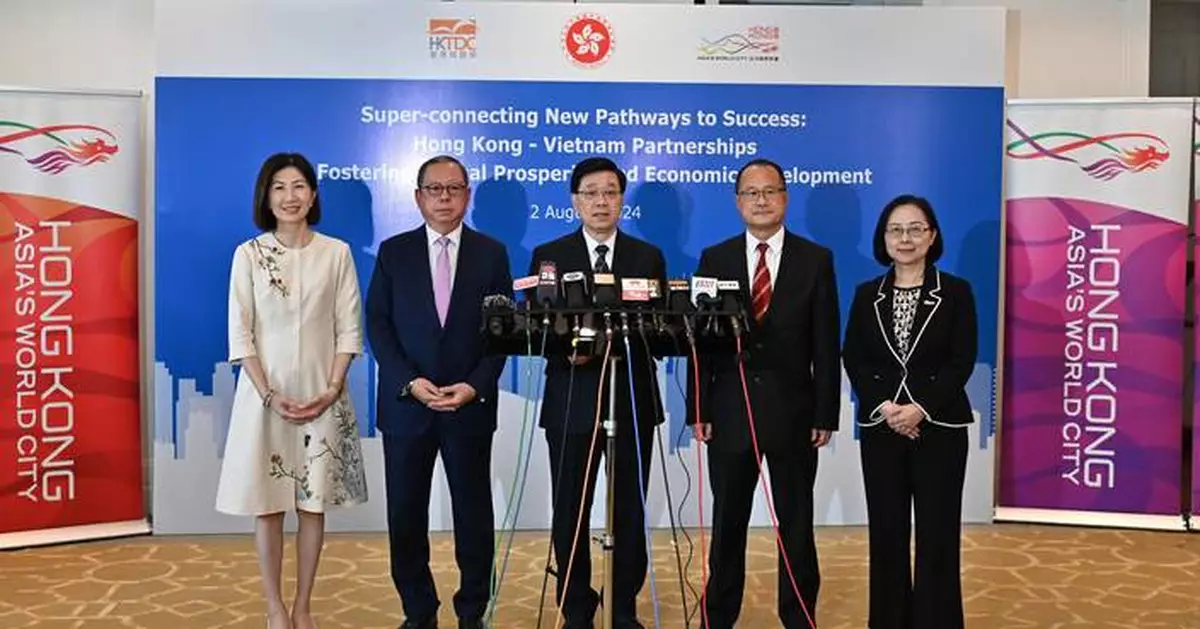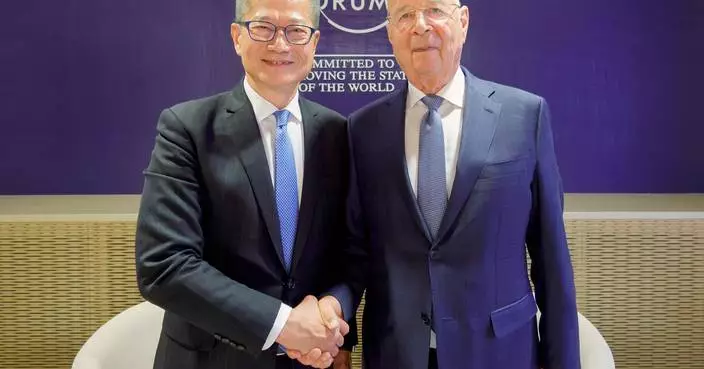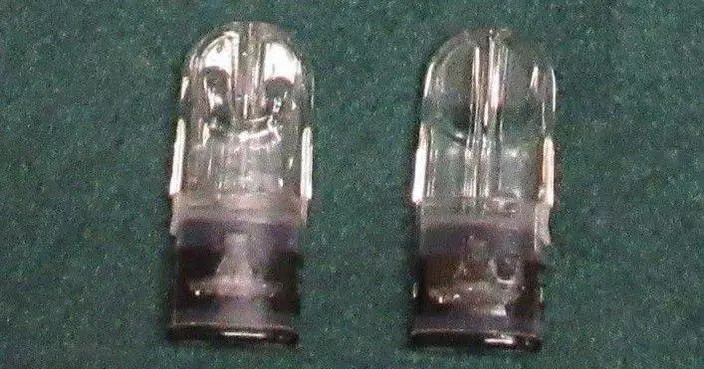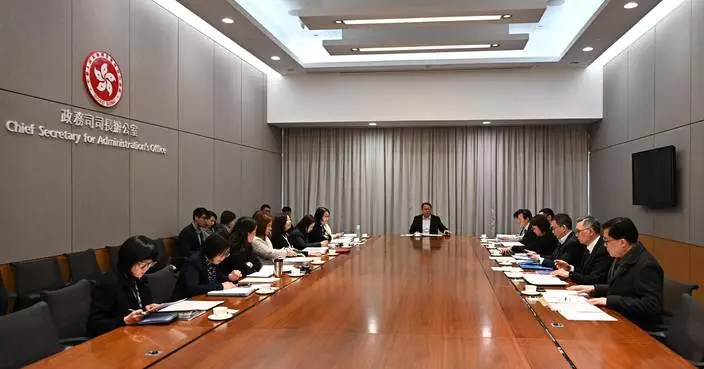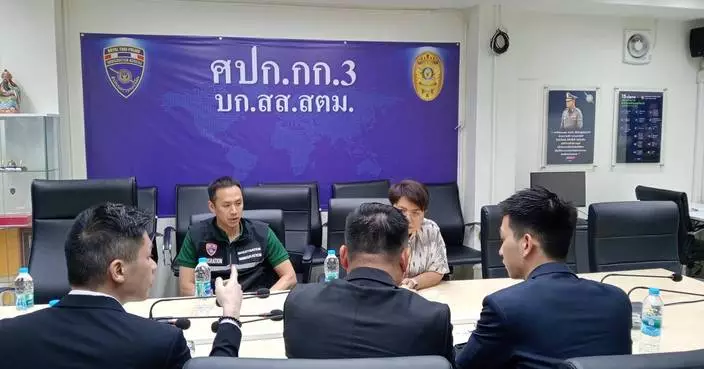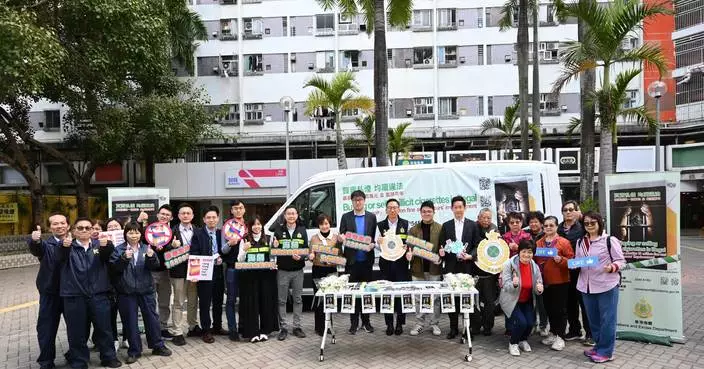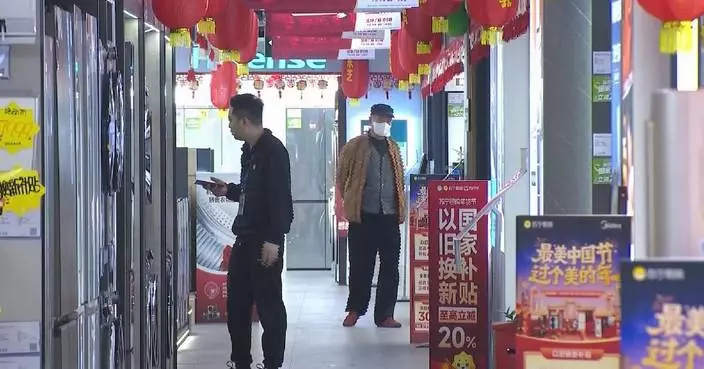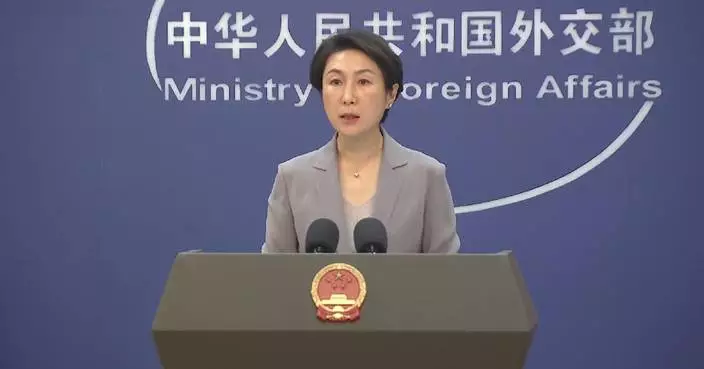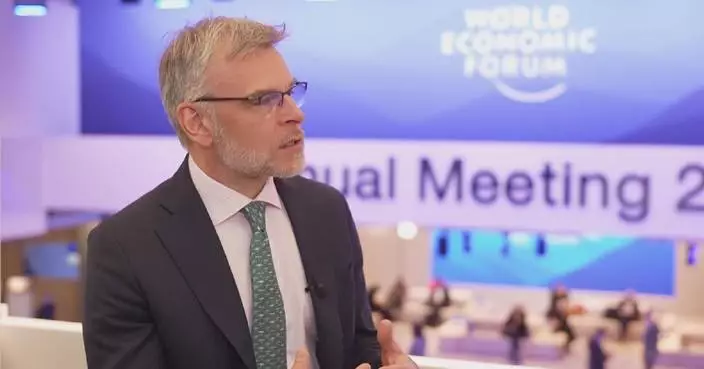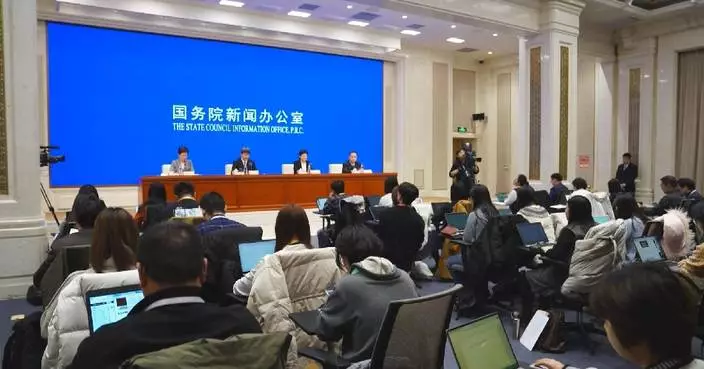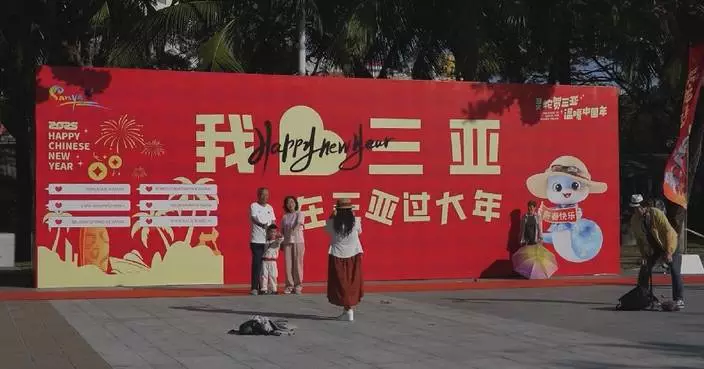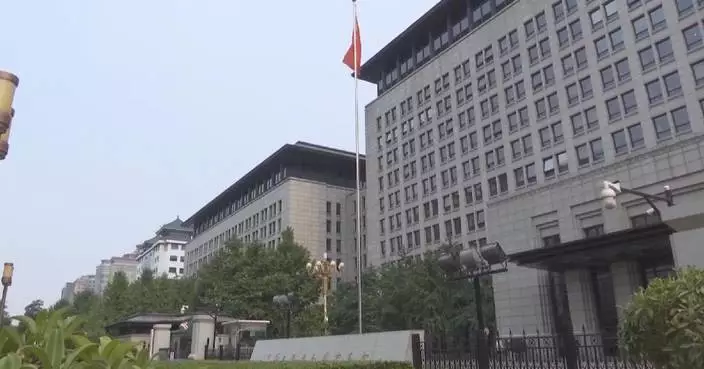Transcript of remarks by CE at media session in Ho Chi Minh City (with photos/video)
The Chief Executive, Mr John Lee, concluded the Hong Kong Special Administrative Region delegation's visit to three countries (Laos, Cambodia and Vietnam) of the Association of Southeast Asian Nations (ASEAN) together with the Chairman of the Hong Kong Trade Development Council, Dr Peter Lam; the Chairman of the General Chamber of Commerce, Ms Agnes Chan; the Chairman of the Chinese General Chamber of Commerce, Dr Jonathan Choi; and the Chief Executive Officer of Hong Kong Exchanges and Clearing Limited, Ms Bonnie Chan, at a media session in Ho Chi Minh City, Vietnam today (August 2). Following is the transcript of remarks by Mr Lee:
Chief Executive: This is the first official visit to Vietnam by a Chief Executive of the Hong Kong Special Administrative Region (SAR).
I had the pleasure of meeting the President and Deputy Prime Minister of Vietnam, as well as the Chairman of the People’s Committee and the Deputy Party Secretary of Ho Chi Minh City.
The delegation visited the manufacturing facility of a Hong Kong enterprise in Vietnam, attended a business luncheon meeting, and exchanged views with local business leaders from different sectors.
The visit to Vietnam has been fruitful, resulting in the exchange of 30 memoranda of understanding (MOUs). With this positive momentum, co-operation between Hong Kong and Vietnam is opening up multiple new opportunities.
Today is the end of our six-day visit to Laos, Cambodia and Vietnam. I would like to take this opportunity to summarise our visit.
During our six-day trip, we visited four cities across the three countries and participated in some-30 events. These included meetings with senior leaders and officials, visits to enterprises and Belt and Road projects, exchanges with the business communities in the four cities, and engaging in activities to promote people-to-people connections.
We have achieved five key results:
First, we have enhanced government-to-government relations and communications. This is the first official visit by the Chief Executive of Hong Kong SAR to these three ASEAN (Association of Southeast Asian Nations) countries. I thank the leaders of Laos, Cambodia and Vietnam for attaching great importance to our visit.
Second, we have achieved fruitful results in co-operation and mutual development.
Hong Kong signed with the three countries a total of 55 agreements or memoranda of understanding, 12 with Laos, 13 with Cambodia, and 30 with Vietnam, covering a wide range of co-operative areas, such as trade and economic partnership, investment, customs collaboration, education, cultural exchanges and tourism promotion.
Third, we lay a solid foundation for future collaboration between Hong Kong and ASEAN, fostering new developments and new opportunities in such areas as trade and investment, financial development, and innovation and technology.
Fourth, we share a strong will in contributing to the Belt and Road Initiative. Hong Kong can provide a rich pool of professional expertise in investment and financing, talent management, operation and network in supporting the developments in the Belt and Road regions.
Fifth, we have confirmed the support from the three countries’ governments for Hong Kong in joining the Regional Comprehensive Economic Partnership (RCEP).
I express gratitude to the leaders of the three countries, including the current ASEAN Chair, Laos, who reaffirmed their support for Hong Kong's early accession to RCEP.
The delegation will soon depart for Hong Kong. Our work, however, will continue. Members of the delegation will share their insights and experiences of the visit through their extensive networks. Thank you.
Reporter: Good afternoon, sir. Firstly, congratulations on your official visit to Vietnam. We have two questions. The first one is please tell us about the objectives and the significance of your visit in Ho Chi Minh City. And the second one is, as a major financial centre in Asia and the world, what will Hong Kong do to promote the co-operation opportunities with Ho Chi Minh City in building a regional financial centre, as well as promoting economic co-operation between the two sides in general?
Chief Executive: I came to visit three countries of ASEAN - Laos, Cambodia and Vietnam - with the clear objectives of building government-to-government ties, building business-to-business co-operation and promoting people-to-people exchange. So, we have also been meeting a lot of people and have successfully signed memoranda on co-operation, or co-operation intent, in some 15 areas. We have signed MOUs with 12 entities in Laos, 13 entities in Cambodia, and 30 entities in Vietnam. And these entities, of course, include our government counterparts and also the private sector. We are very happy that the visit has reaped all these good results. But what is even more important is the goodwill that we have built, and the friendship that we have created and strengthened.
There are five results which are achieved in this visit. First, we have enhanced government-to-government relations and communication. And we have achieved fruitful results in co-operation and mutual development, for example, with the 55 MOUs that we have signed. We have also laid down a strong foundation for future co-operation, collaboration and fostering new development and new opportunities. Fourth, we share a strong will in contributing to the Belt and Road Initiative. And fifth, thanks to the three governments, we have again received a clear indication of support from the three governments for Hong Kong to join RCEP early. These, I think, mean that there is a very strong and common will in strengthening ties and creating co-operation opportunities and helping each other.
As regards economic co-operation between various parties, in particular in regard to the question of financial centre, because in our communication with the leaders of Ho Chi Minh City, in particular, they have explained to me their determination and commitment to develop the city into a financial centre. In fact, one of the MOUs was signed between the Hong Kong government's Financial Services and the Treasury Bureau with the Ministry of Finance, and the agreement is on communication and knowledge exchange in relation to finance matters. Our experience as an international financial centre tells us that a financial centre covers a wide range of business activities, investment opportunities. Besides trading in stocks, or listings, it also covers bonds issuance, derivatives, the banking sector, ease of doing business, and relevant regulations and laws. And of course, talents are important. Fintech, for example, is an area that I think all of us must do well in order to ensure our competitiveness.
So we will be doing a lot to communicate with our counterparts in these three countries. We are very willing to share our experiences, to assist in capacity building and also to help each other in developing good regulations and laws, talents and technological skill in regard to financial matters.
(Please also refer to the Chinese portion of the transcript.)
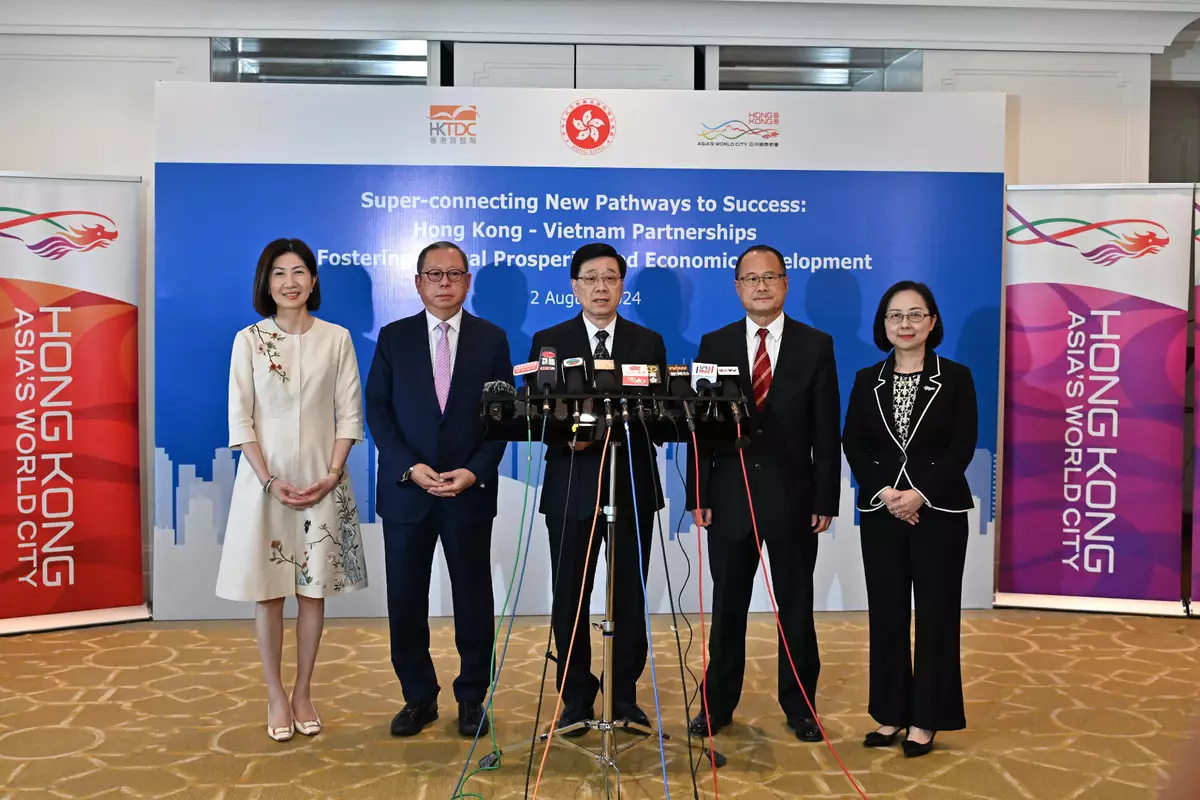
Transcript of remarks by CE at media session in Ho Chi Minh City (with photos/video) Source: HKSAR Government Press Releases


